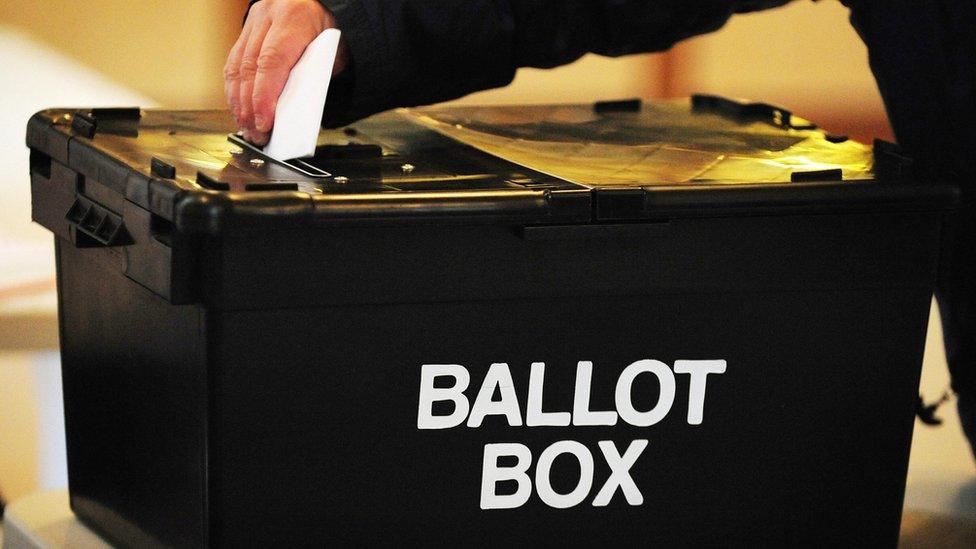Wales local council elections: Final push for votes
- Published
BBC Wales reporter James Williams looks ahead to this year's council elections
Politicians and their parties are making their final push for votes before Thursday's local elections.
Voting will take place in all of Wales' 22 local authorities, with a total of 1,234 councillors to be elected.
For the first time at a council election level, 16 and 17-year-olds are eligible to vote, with early voting also being trialled in some areas.
Counting will take place during the day on Friday, rather than overnight.
There are 74 seats across Wales where councillors will be elected unopposed.
What will the different parties be hoping for?
Despite losing more than 100 seats at the last council election in 2017, Welsh Labour has the largest number of councillors and majority control of seven local authorities.
The party, led by First Minister Mark Drakeford, is hoping to build on its strong performance at last year's Senedd election when it won half the seats in Cardiff Bay.
"This is your opportunity to vote for a councillor to join a committed Welsh Labour team which will work hand-in-hand with your Welsh Labour government to make a real difference to the lives of people right across your community and across Wales," he said.
"When you go to the ballot box, vote for the issues that matter to you, for councillors you can rely on when things get tough, for councillors who will get things done.
"But most of all - vote for what you value."
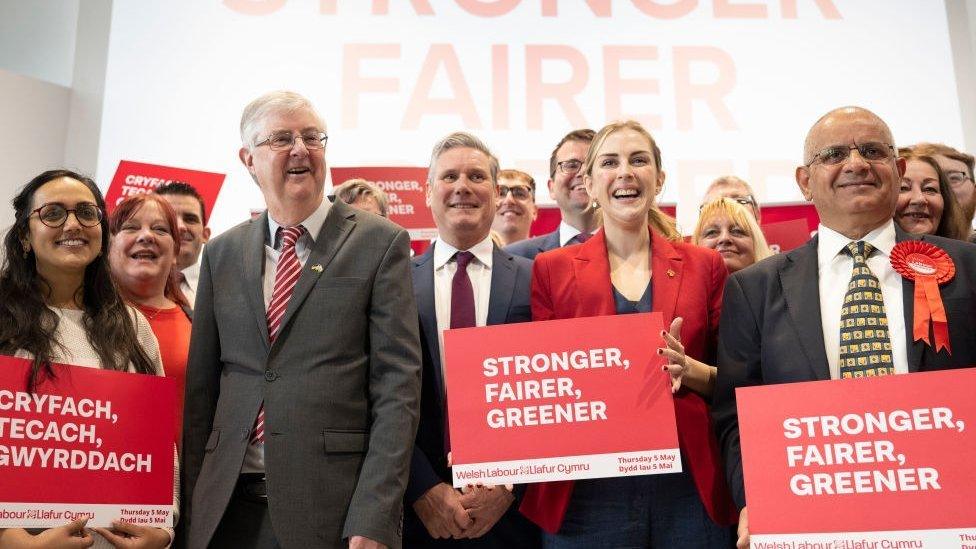
Mark Drakeford, Sir Keir Starmer and Bridgend Member of the Senedd Sarah Murphy launched Labour's campaign
The Welsh Conservatives were the big winners in 2017, increasing their representation on more than half of Wales' councils and securing a majority in Monmouthshire.
Last year the party won its highest ever number of Senedd seats.
But these elections come at a difficult time for the Tories as Prime Minister Boris Johnson remains under pressure over Covid rule-breaking in Downing Street and the cost of living crisis.
Welsh Conservatives' chairman Glyn Davies said: "We will be fighting for seats across Wales, right up until the close of polls.
"These elections are really important, because they give people the opportunity to decide who runs the vital services we all depend on.
"Our message to voters is very clear: It's either more of the same from Welsh Labour and Plaid Cymru - or a chance to build stronger and safer communities with the Welsh Conservatives."
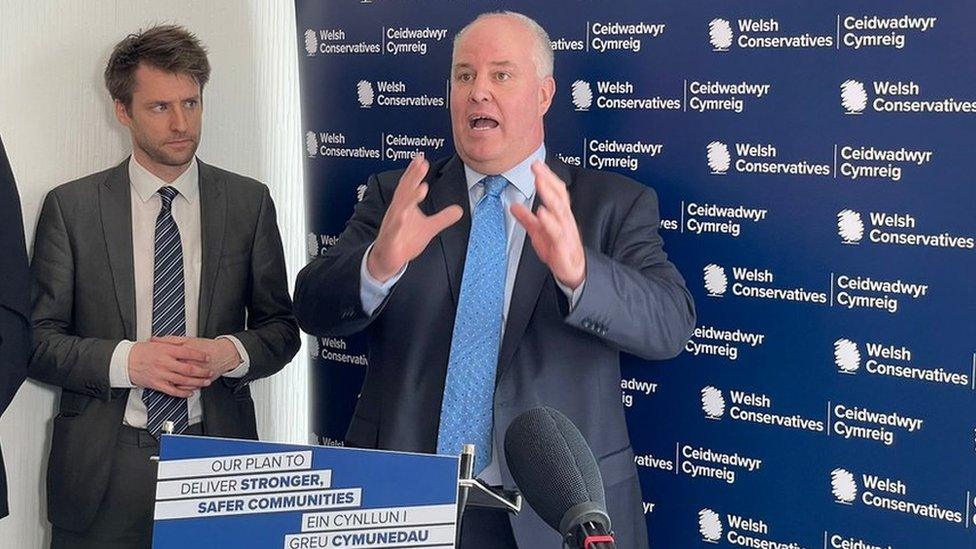
Conservative Senedd leader Andrew RT Davies announced the largest field of Tory candidates, at the party's campaign launch
Plaid Cymru go into the elections leading four councils, having made modest gains in 2017.
But a disappointing set of results for the party last May saw Plaid finish third.
Since then, Plaid has reached a co-operation deal with Labour in Cardiff Bay, which has allowed it to get some of its policies through, including free school meals for all primary school children.
Leader Adam Price said: "Throughout the pandemic, Plaid-led councils took swift steps to protect local jobs and support schools and businesses during one of the most difficult times any of us can remember.
"On a national level too, Plaid is delivering for communities nationwide having secured free school meals for all primary pupils as part of our cooperation agreement with the Welsh government.
"A vote for Plaid Cymru on Thursday is a vote to take this further. Plaid Cymru-run councils are committed to the aim of extending free school meals to all secondary school pupils, helping to tackle child hunger, poverty and inequality."
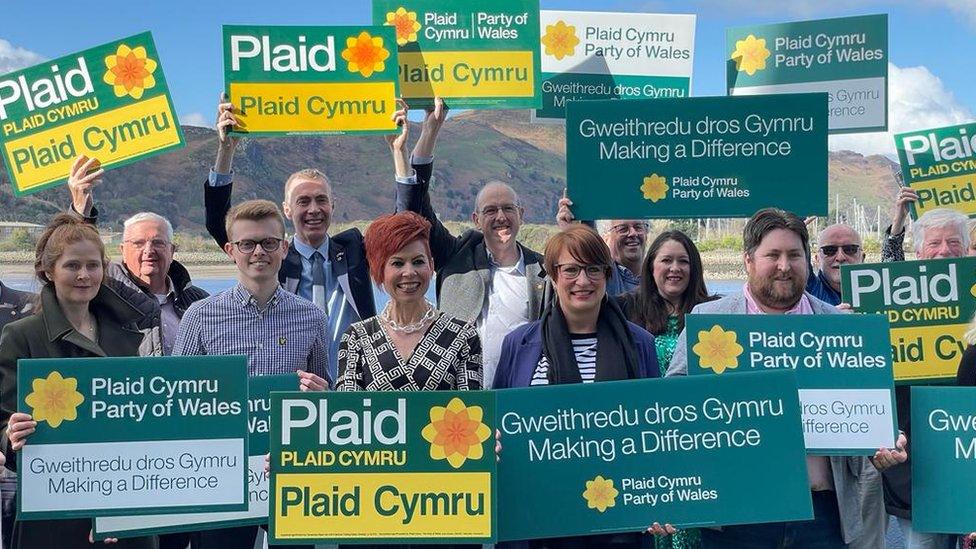
Plaid Cymru leader Adam Price and party activists pledged to "make a difference" to people's everyday lives in their campaign
The Welsh Liberal Democrats lost ground in 2017 but were pleased to hold on to their single Senedd seat last May.
The party's leader and only Member of the Senedd Jane Dodds said: "Right across Wales our candidates are working hard and listening to residents' concerns, and we've been getting really great feedback.
"Up and down the country we are finding people fed up of being taken for granted or ignored.
"Whether it's the constant scandals of the Conservative Party or decades of Labour stagnation, people want a change."
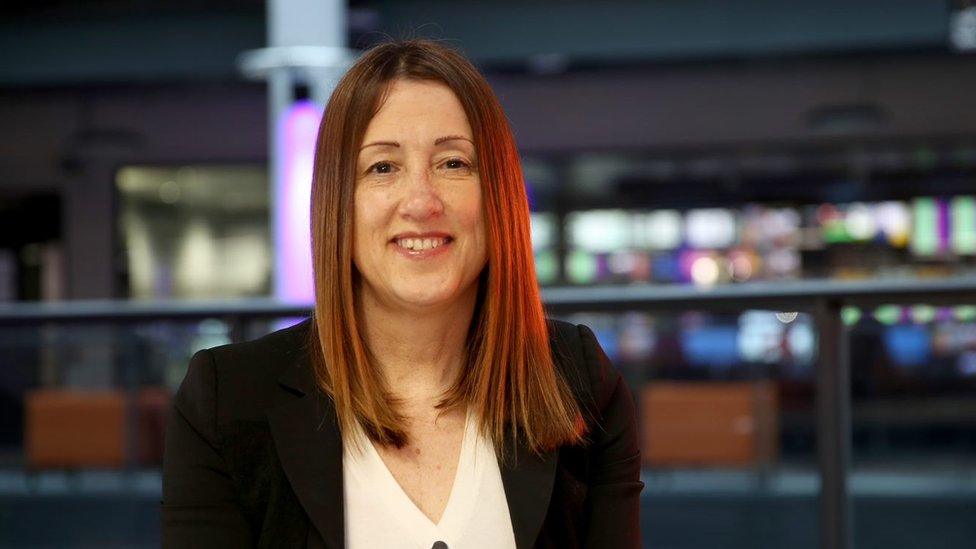
Welsh Lib Dem leader Jane Dodds says people want a change from Labour and the Tories
Independent candidates are also competing for votes.
In 2017 the independents made up the second largest group of elected councillors, teaming up in some cases to run local authorities.
A spokesman for the independent group on the Welsh Local Government Association (WLGA) said: "Independents are predominantly local people with an excellent understanding of their communities and the real needs of their residents.
"As the second largest group in the WLGA they were able to influence and lobby at a real national level not only holding the other political parties to account but also leading on important issues.
"The independents have led seven authorities in Wales and in a coalition in five, making local authorities closer to their communities with least influence from Westminster and Cardiff."

POSTCODE SEARCH: Is there an election in my area?
WHAT'S HAPPENING IN WALES: A really simple guide
ELECTIONS ACROSS THE UK: Find out more

- Published1 May 2022
